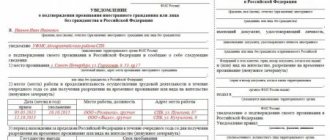When is a claim filed?
Often the rights of the owner are violated by persons who become defendants in eviction cases:
- former spouses who are not the owners of the premises;
- former owners of the property and family members;
- illegally using housing;
- employers whose established tenure has ended and members of their families.
The reasons for eviction are the following facts:
- loss of the right to use housing or the absence of such initially (Article 35 of the Housing Code of the Russian Federation);
- systematic violation of rights of use;
- illegal redevelopment, improper use (in relation to the owner).
Procedure for filing claims for forced eviction with a sample
Police are generally reluctant to respond to allegations from property owners, unwilling to delve into the nuances of disputed property rights or contractual tenancy obligations. According to Article 3 of the Civil Procedure Code of the Russian Federation, the owner of the premises has the right to go to court to protect his legitimate interests. To do this, you will need to draw up and submit a statement of claim for forced eviction that complies with the law.
Industrial enterprises, large organizations, educational institutions provide their employees and students with places in dormitories for the duration of the working season, employment contract or study. Accordingly, after dismissal, graduation or expulsion, employees and students must vacate the housing provided to them.
Statement of claim by the new owner of the residential premises for eviction, recognition as having lost the right to use the family members of the previous owner, deregistration (the plaintiff purchased the residential premises, however, family members of the former owner (seller) do not vacate the disputed residential premises and retain registration in it at the place residence).
- Eviction of the owner's adult children from the apartment. Is it possible to evict?
- How to evict adult children from an apartment due to hostile relations?
- Eviction from a relative's apartment. When can the right of use not be preserved?
- Eviction of a grandson from an apartment as a former member of the owner’s family
- Eviction of minors (grandchildren) from residential premises by the owner?
- How to evict a relative (grandchild) from an apartment as a former family member?
- Eviction of a common-law spouse from an apartment as a former member of the owner’s family
- Eviction from an apartment upon transfer of ownership
- Reservation of the right to use residential premises for the former spouse by court decision
- Retention of the right to use residential premises. Arbitrage practice
We recommend reading: How much is the payment for the Chernobyl zone in the Kaluga region
Where to file a claim
The consideration of such cases falls exclusively under the jurisdiction of district or city courts.
Legal documents
- Article 35 of the RF Housing Code. Eviction of a citizen whose right to use residential premises has been terminated or who violates the rules for using residential premises
- Article 31 of the RF Housing Code. Rights and obligations of citizens living together with the owner in residential premises belonging to him
- Article 29 of the RF Housing Code. Consequences of unauthorized reconstruction and (or) unauthorized redevelopment of premises in an apartment building
- Article 32 of the RF Housing Code. Ensuring the housing rights of the owner of a residential premises during the seizure of a land plot for state or municipal needs
- Article 84 of the RF Housing Code. Eviction of citizens from residential premises provided under social tenancy agreements
- Article 91 of the RF Housing Code. Eviction of the tenant and (or) members of his family living with him from the residential premises without the provision of other residential premises
- Article 131 of the Code of Civil Procedure of the Russian Federation. Form and content of the statement of claim
- Article 132 of the Code of Civil Procedure of the Russian Federation. Documents attached to the statement of claim
How to file a claim for eviction from an apartment in 2021? Legal advice
What should be a competently drawn up statement of claim for forced eviction from a residential premises?
Firstly, such a statement must be drawn up in simple written form (either printed out or written by hand - in clear and legible handwriting, with the text divided into sentences and paragraphs);
Secondly, all copies of the statement of claim must be signed by the plaintiff.
We recommend that you include the following information in your application:
- The name of the district court in which the claim is filed;
- Last name, first name, patronymic, postal address and telephone number of the plaintiff;
- Full name and address of the defendant;
- The grounds for the defendant’s residence in residential premises owned by the plaintiff;
- An explanation of the reasons why the plaintiff is seeking eviction;
- Indication of compliance with the mandatory pre-trial dispute resolution procedure;
- Plaintiff's claims;
- List of documents attached to the statement of claim;
- Date of filing the claim.
statement of claim for eviction from a residential premises (version current for 2021)
Example of a statement of claim for eviction from an apartment
To the Babushkinsky District Court of Moscow
Plaintiff: Alisa Avksentievna Lomonosova
Address: 129281, Moscow, st. Letchika Babushkina, 39, apt. 3
Telephone
Defendant: Chaadaev Valentin Eliseevich
Address: 129281, Moscow, st. Letchika Babushkina, 39, apt. 3
Phone3
STATEMENT OF CLAIM
about eviction from a residential premises
Based on the purchase and sale agreement No. 11-2233/2019 dated January 10, 2021 (copy attached), I, Alisa Avksentievna Lomonosova, am the owner of a residential premises located at the address: 129281, Moscow, st. Letchika Babushkina, 39, apt. 3. During the period of acquisition of the specified real estate, I was not married.
During the period from February 06, 2021 to August 25, 2021, I was married to the defendant. For joint family residence, I registered my ex-husband in the indicated apartment at the place of residence.
By the decision of the Babushkinsky District Court of Moscow, the marriage between me and the defendant was dissolved (a copy of the divorce certificate is attached).
According to paragraph 4 of Art. 31 of the Housing Code of the Russian Federation, in the event of termination of family relations with the owner of a residential premises, the right to use this residential premises for a former family member of the owner of this residential premises is not retained, unless otherwise established by an agreement between the owner and the former member of his family.
After the dissolution of the marriage, Chaadaev V.E. refuses to voluntarily move out of my residential premises. On November 1, 2019, I suggested that the defendant vacate my apartment by December 01, 2021.
By virtue of paragraph 1 of Art. 35 of the Housing Code of the Russian Federation, if the defendant’s right to use residential premises is terminated, he is obliged to vacate the apartment. If he does not vacate the apartment within the prescribed period, he is subject to eviction at my request based on a court decision.
Based on the above, guided by Articles 31 and 35 of the RF Housing Code, as well as Articles 131, 132 of the Code of Civil Procedure of the Russian Federation,
Ask:
Evict Valentin Eliseevich Chaadaev from the residential premises at the address: 129281, Moscow, st. Letchika Babushkina, 39, apt. 3.
List of documents attached to the application
- A copy of the statement of claim for the defendant
- Copies of title documents for the apartment
- Copy of divorce certificate
- Document confirming payment of state duty
Application submission date December 10, 2021
Plaintiff's signature: _______
statement of claim for eviction from a residential premises (version current for 2021)
Note! If you have questions or encounter any difficulties in preparing an eviction claim, you can always seek free legal advice from the specialists of the CenterSoveta portal. The average waiting time for a response from a lawyer is 15 minutes.
How to evict a person from an apartment if he is registered in it without his consent
If a citizen who needs to be evicted (for any reason) does not agree to move out, then eviction is possible only through the court. In this case, the owner of the apartment or house is obliged to prove that the resident has lost the right to reside in his possession.
The procedure for eviction through court is quite complex; it is necessary to take into account many nuances and follow a certain algorithm.
Jurisdiction
The first thing you need to decide is the jurisdiction of the case. Eviction claims are heard by city or district courts at the place of registration of the defendant. Since the defendant is registered in the residential premises from which the plaintiff intends to evict him, then, accordingly, the claim must be filed in court at the location of the residential premises.
Step-by-step instruction
Having decided on jurisdiction, we move on. So, step by step:
- Sending a written notice to the tenant about the need to leave the residential premises he occupies. If the tenant ignores the owner’s demand, then a judicial solution to the problem remains.
- Drawing up a statement of claim and collecting the necessary documents.
- Payment of state duty.
- Preparation of documents in a single package with the statement of claim.
- Transfer of the claim and the documents attached to it to the court office.
- Participation in all court hearings.
- Receipt of a court decision that has entered into force.
- Execution of a court decision (deregistration and eviction of tenants). If necessary, you can connect the SSP at this stage.
Notice of eviction from an apartment
We found out that the first step to evict an unwanted tenant should be a notification (alert) about eviction from a residential premises with a mandatory period during which the citizen must deregister and leave the premises. Sending such a notice is the responsibility of the apartment owner who intends to evict an unwanted person, otherwise the court will not accept the claim for consideration.
Lawyers do not recommend notifying unwanted tenants orally; the court will not regard oral notification as evidence. The notification must be sent by registered mail with acknowledgment of receipt, the second copy must be kept by the owner of the apartment.
If it is not possible to notify the tenant in this way (he may not go to the post office for a letter or may not allow the postman into the apartment), then the owner of the property must try to deliver the notification personally in the presence of witnesses. As a last resort, you can notify him orally, but in the presence of at least two witnesses who can subsequently confirm this fact in court.
Sample eviction notice
List of documents for the court
Before filing a claim in court, the plaintiff must collect an impressive package of documents, namely:
- Any title document for residential premises.
- Receipt for payment of state duty.
- Utility bills.
- Certificate of divorce in case of eviction of the former spouse.
- If available, police reports on the defendant’s violation of public order.
- Second copy of the eviction notice.
- An inspection report of the residential premises and an independent expert’s opinion on damage to the residential premises. These documents are necessary in cases where the plaintiff intends to evict the defendant because the latter has rendered the housing uninhabitable.
- Some other documents.
Photocopies of the above documents are attached to the claim (except for the receipt for payment of the state duty, it is submitted in the original). The number of copies is determined by the number of parties participating in the process.
State duty
The state fee for a claim for deregistration and eviction is 300 rubles. This amount is determined by law for all non-property claims.
Time limits for consideration of a claim
30 days after the filing of the claim, preliminary hearings on the case are held in court. The judge invites the parties to enter into a settlement agreement, and if the plaintiff and defendant come to a consensus, it is drawn up and signed directly at the court hearing. This is the most time-efficient trial.
But the signing of a settlement agreement does not happen in every case; more often than not, if the matter comes to court, the parties do not intend to stop and give in to each other. Therefore, at the preliminary hearing, the court sets a date for the main hearing, usually one month after the first hearing. There the case is considered on its merits and a court decision is made.
After the court’s verdict, the defendant (or plaintiff, if he does not agree with the court decision) is given a month to prepare and appeal the court’s decision. If the appeal does not occur, the court clerk prepares a writ of execution, which may take two to three weeks.
In total, the legal process from filing a claim to receiving a writ of execution can last from two to three months, unless, of course, one of the parties delays the process.
Delaying the legal process is a fairly common practice in cases where the defendant understands that he will lose in court, but he needs time to find alternative housing.







